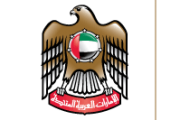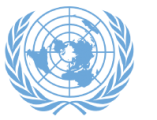Mr. President,
I would like to express my gratitude to the Chairman of the Committee on the Peaceful Uses of Outer Space, Mr. David Kendall, along with the members of the Committee and the Director of the United Nations Office for Outer Space Affairs (UNOOSA), for their dedicated efforts to promote international cooperation in this field.
Scientific experiments conducted in the field of outer space have led to real and positive impacts in multiple areas, such as technology, environment, agriculture, engineering, communications and navigation, among others. Space is the legacy of all mankind, and therefore requires preservation and sustainable use, and the strengthening of international cooperation in space activities, in addition to strengthening confidence and security measures among member states. In this regard, we stress the need and importance of using outer space in a spirit of responsibility and transparency, and to curb the arms race in it.
Mr. President,
The United Arab Emirates recognizes that developing space technology and instilling solid foundations for it will benefit human kind in various ways, as well as stimulate the economic growth of nations. Therefore, my country has been devoted to building a strong and sustainable space sector, and has acquired the resources, scientific expertise and national will to participate in the exploration of space.
Through the UAE Space Agency, my country is organizing and developing the outer space sector, by preparing generations that will hold high professional qualifications, For example, one of the UAE students, Alia Al Mansouri, whose scientific space experiment won the “Genes in Space" competition held in Abu Dhabi, was carried to space by the “Falcon 9” rocket from the headquarters of NASA.
The UAE Space Agency has launched the National Space Policy to define the UAE's principles, ambitions and approaches in developing its national space program. The agency is also responsible for developing the UAE's "space law" to define legal frameworks and legislation for the space sector in line with federal policies and international laws and regulations.
The agency has made important achievements in building strategic partnerships regionally and globally. My country, represented by the UAE Space Agency, has signed more than 16 cooperation agreements with the most prominent international space agencies and concerned governmental agencies regionally and globally.
Our commitment to the development and peaceful exploration of the space sector is reflected in the network of international relations established by the UAE with the leading players in the area of outer space. My country joined a number of international organizations and bodies such as the Committee on the Peaceful Uses of Outer Space (COPUOS), and the International Astronautical Federation, as well as adopting many international treaties and conventions that would enhance international cooperation in space, and we are currently in the process of ratifying the "Rescue Agreement."
Mr. President,
The year 2020 will be unique to the UAE space sector, since my country is going to host the International Astronautical Congress in Dubai, which is the largest international space conference, in addition to launching the first Arab probe to Mars, becoming one of only nine countries to explore this planet. The Emirates Mars Mission Hope Spacecraft will contribute to scientific knowledge and space applications, and will build high-quality Emirati human resources. By 2020, more than 150 Emirati engineers, both men and women, will be part of this mission, and more than 200 research institutions and centers will benefit from the data and results of this project.
My country has also launched a series of important projects and initiatives in the field of outer space exploration, most notably the establishment of Mars Science City in the United Arab Emirates to simulate life on Mars, and will represent a model that can be applied to the planet. The city will be the first of its kind and the world's largest, occupying one million and 900 thousand square feet.
The project comes within the framework of the Mars 2117 strategy, which was launched by my country this year, and includes the construction of the first human city on Mars to be built in a hundred years, contributing to the expansion of humanity's horizons in outer space.
We will also continue to strengthen global efforts to ensure the long-term sustainability of the space sector through our participation in important forums, including the UNISPACE + 50 Forum. The UAE has also hosted a High-level International Forum entitled “Space as an Engine for Sustainable Social and Economic Development" in 2016, which gave birth to the Dubai 2016 Declaration. We are also pleased to host the second and final session of this forum which will be held in the UAE during 6-9 November 2017, in cooperation with the United Nations. This reflects the UAE's keenness to enhance cooperation and coordination among all parties in order to support the effective role of the industry, sciences and space technologies in sustainable social and economic development.
In conclusion, Mr. President, through this intervention, the UAE wishes to emphasize two main points,
First: the importance of cooperation and coordination between governments and other partners in the private, academic and others concerned with the space sector under the esteemed umbrella of the United Nations and its Office of Outer Space Affairs (UNOOSA).
Second: the importance of enhancing the role of the private sector and encouraging investment in the space industry.
Thank you, Mr. President.


